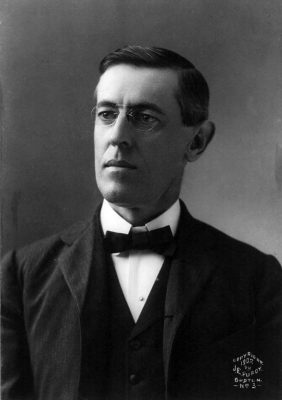Most people know about Thomas Woodrow Wilson (1856-1924) as the 28th President of the United States. But what about his education and what he did before becoming the president? In this article, we will be talking about Wilson’s education and how it shaped his future career as a politician.
Davidson College
There were records that say Wilson was dyslexic. He didn’t start learning to read until he was ten. Moreover, he did not attend an elementary school because he grew up in a rural area with few public schools nearby. Despite all of these, Wilson was able to enroll at Davidson College in North Carolina in 1873. However, he only stayed there for a semester and transferred to the College of New Jersey, now known as Princeton University.
Princeton University (formerly The College of New Jersey)
At Princeton, Wilson studied political philosophy and history. He was very involved in different extracurricular activities during his time at Princeton. He was a member of the Phi Kappa Psi fraternity and participated in various literary and debating societies. On top of that, he was elected as the school’s football association’s secretary and the school’s baseball association president. He was also the managing editor of the student newspaper.
During the 1876 election, Wilson showed his support for the Democratic Party. The election was a very close one between the Republican Rutherford B. Hayes and the Democrat Samuel J. Tilden. In the end, Hayes won, although it was a controversial victory.
University of Virginia School of Law
After graduating from Princeton University in 1879, Wilson pursued his law studies at the University of Virginia. He was once again active in different extracurricular activities. He joined the Virginia Glee Club and became the president of the Jefferson Literary and Debating Society. Unfortunately, his health started to deteriorate, which led to him withdrawing from the university.
Despite Wilson’s health issues, he still pushed through with his plan of becoming a lawyer. He studied law on his own and was eventually admitted to the Georgia bar in 1882. He set up a law practice in Atlanta, but it did not last long.
Johns Hopkins University
While Wilson enjoyed legal history and substantive jurisprudence, he found the day-to-day work of being a lawyer to be tedious and unfulfilling. He decided to delve into political science and history instead. In late 1883, Wilson pursued doctorate studies at Johns Hopkins University in Baltimore. The university was recently established and was patterned after the German research university model. Johns Hopkins University focused on academic research as a fundamental part of its educational mission.
After realizing that being a lawyer was not his true calling, Wilson changed direction and hoped to become a professor. He worked on a series of essays about the federal government and the Constitution. His hard work paid off, and Congressional Government: A Study in American Politics was published by Houghton Mifflin. In 1886, he earned his Ph.D. in government and history, then was offered a teaching position at Bryn Mawr College in Pennsylvania.
Future Career Path
Wilson’s educational background played a significant role in his future career path in politics. He drew the attention of New Jersey’s Democratic Party, and the rest, as they say, is history. Wilson went on to become one of the most influential presidents in American history.
